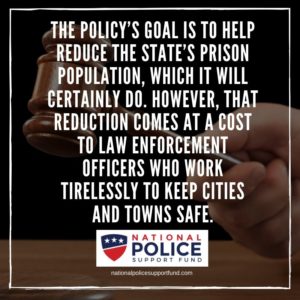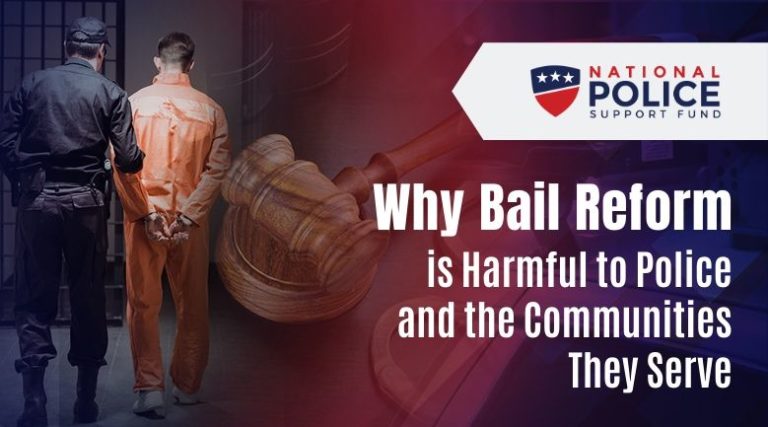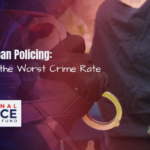The state of New York made headlines earlier this year when a new bail reform law took place that requires judges making arrests to release suspects until their arraignment, rather than putting them in jail. New York joins California and New Jersey in adopting bail reform.
The policy’s goal is to help reduce the state’s prison population, which it will certainly do. However, that reduction comes at a cost to law enforcement officers who work tirelessly to keep cities and towns safe. Let’s take a closer look at why bail reform is so disrespectful to police — and what we can do about it.
What Does the New Bail Reform Law Say?
Under New York’s previous law, prosecutors would determine whether to make a bail recommendation or agree to have the defendant released on their own recognizance. The case judge would then make a determination about whether bail should be set and how much it should be.
Public defenders or defense attorneys would have the opportunity to make arguments for lower or no bail, which the arraigning judge would take into consideration before making a final decision.
Under the new law, courts are now prohibited from setting any monetary bail or keeping defendants in custody before trial. Instead, they must be released on their own recognizance — even for crimes like assault, burglary, stalking, manslaughter, and even criminally-negligent homicide.
In addition, judges are not allowed to take public safety into consideration when deciding whether to release a suspect. Removing this discretion is not only disrespectful to police, it’s disrespectful to judges, according to Nassau County Police Commissioner Patrick Ryder.

“Judges are the most respected people in our law enforcement community,” Ryder told Fox News. “They’re the most educated. They need to have that discretion to decide who should stay and who should go.”
Judges, Police, and the Public
Bail reform measures come as a slap in the face to police who work hard to keep communities safe and earn the public’s trust. If a violent offender is put back onto the streets, the safety of everyone in that neighborhood is called into question.
Seeing an arrested person walk free makes people doubt the legitimacy of the police officer who arrested that person, which leads to further distrust and skepticism of police. It also creates a sense of fear within the community and heightens tensions among neighbors when they believe that the criminal justice system is not working effectively.
Bail reform changes directly relate to what Attorney General William Barr has described as a growing disrespect for law enforcement.
“Police officers must look on as the criminals that they have risked their lives to apprehend get turned loose by “social-justice” DAs and “progressive” judges who no longer see their role as protecting the community from predators,” Barr wrote in the New York Post. “Some DAs have even exposed police officers to greater danger by announcing that they will not prosecute those who resist police.”
Thankfully, New York’s residents have seen the problems with bail reform and are beginning to express their frustrations. According to a poll conducted by Siena College, 59% say that that bail reform is bad for New York. Only 33% of respondents said the new law is good for New York.
Those numbers represent a complete reversal since the law was announced in April 2019. At that time, 55% of residents said it was a good thing, while 38% said it was bad.
Now is the Time to Act
Given the decline in public support, now is the time for law enforcement officers to come together in opposition to bail reform and put pressure on legislators to overturn the law and restore safety and justice to New York’s residents.
Even if you do not live or work in New York, you can take a stand to help your fellow officers fight for the respect we all know they deserve. Speak out against bail reform and send messages of support to your fellow officers who are dealing with its impacts.
Together, we can work to overturn this disrespectful law that’s putting our communities at risk and increasing disrespect for police.
The Fraternal Order of Police, an organization representing nearly 350,000 law enforcement officers across the United States, is under attack by people who say that it represents nothing but the problems in our criminal justice system. Read more here why the FOP is under attack and what you can do to support the organization.









